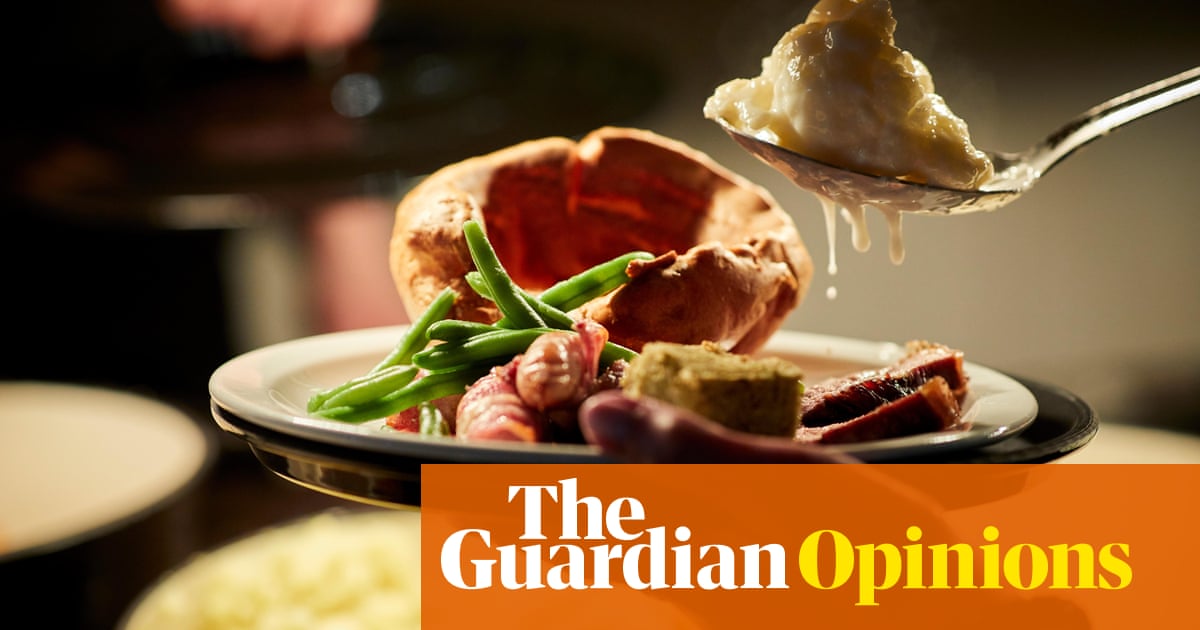
Should you be penalised for having eyes bigger than your belly? A Cornish pub is trying it out: Mark Graham, the landlord of the Star Inn, now charges £2.40 a person for buffet “excess leftovers”. “A few spuds is obviously no problem,” Graham told a customer who complained, but said that buffet behaviour was out of control, citing a plate “piled so high you could put a ladder and a flag on top of it”.
I can believe it. I lose my mind faced with a buffet, although I usually clean my plate (gravely regretting my choices in the hours that follow). Are we our best selves as we take up tongs in the glow of the heating lamps? That depends which side of the chafing dish you are standing on. Our hunter-gatherer instincts are capable of making any food and beverage professional quake; call it Homo Harvester.
But we waste horrifying amounts: an estimated 17% of global food production. From 2010-16, food waste was estimated to have contributed 8% to 10% of human-made greenhouse gas emissions and I doubt we are doing any better now.
Thankfully, science is on our case. Researchers at the University of Queensland this year explored what drives us to create an unscalable Jenga castle of sausage rolls, decorated with prawn gargoyles and surrounded by a custard moat. We might be driven by a “scarcity heuristic” (scared of missing out when there is not much left) or a “diversification heuristic” (taking things we don’t particularly like “for variety’s sake”). Too many options can cause cognitive overload, leading us to take a bit of everything.
Can we be tamed? Other research has suggested that penalising buffet waste is “ineffective”; people respond better to smaller plates and rewards for eating up. I doubt any of this would be enough to calm my unbridled buffet lust; nothing short of a shock collar activated on my 10th trip to the desserts would do it.